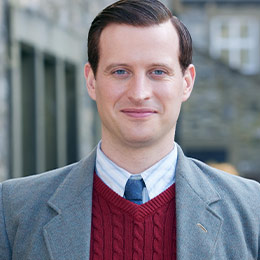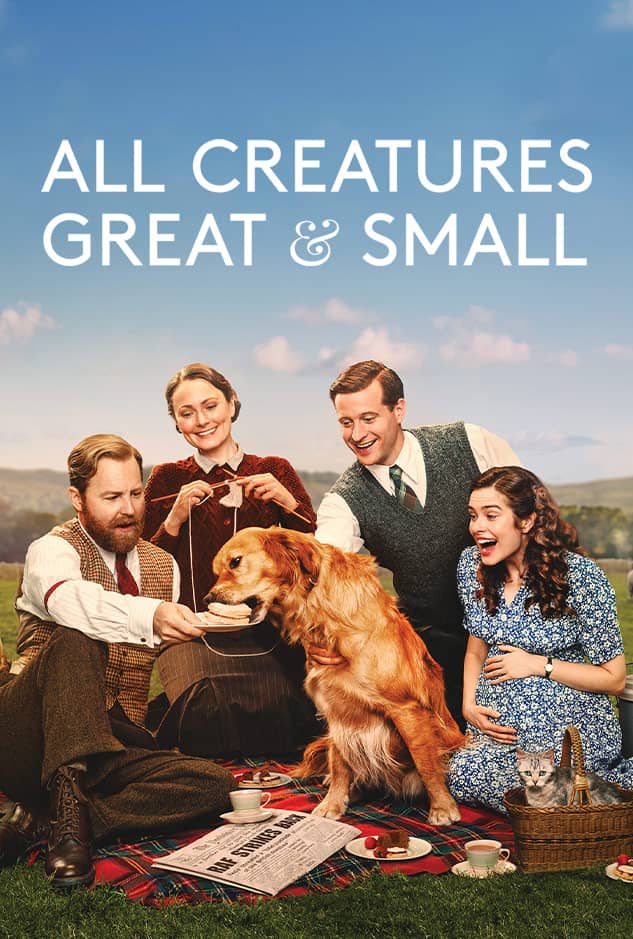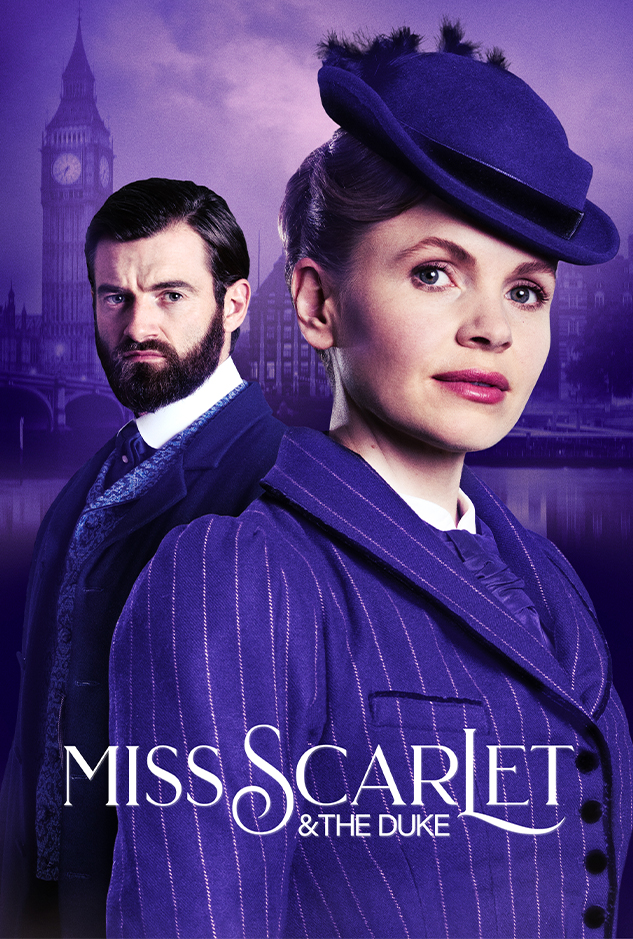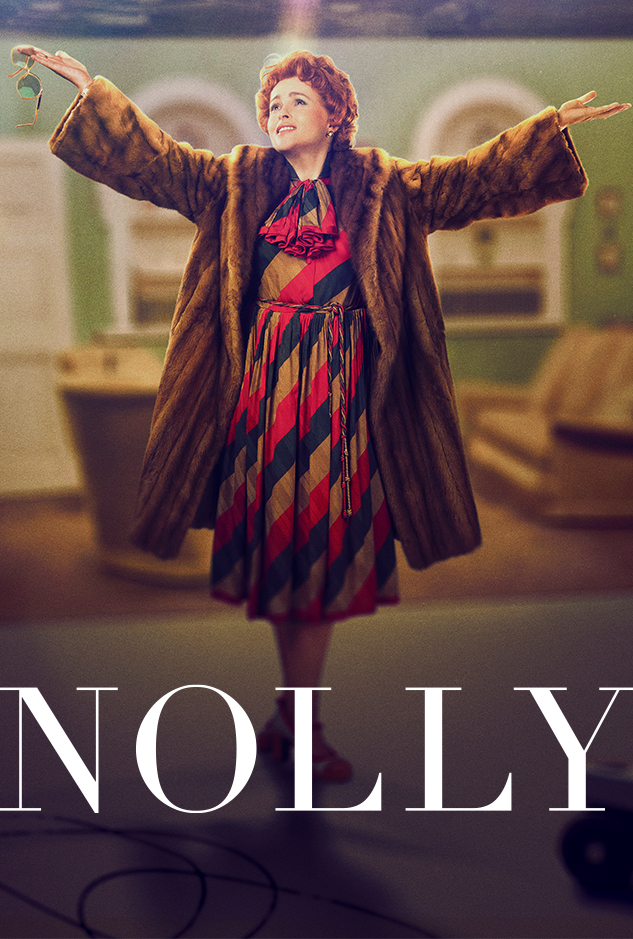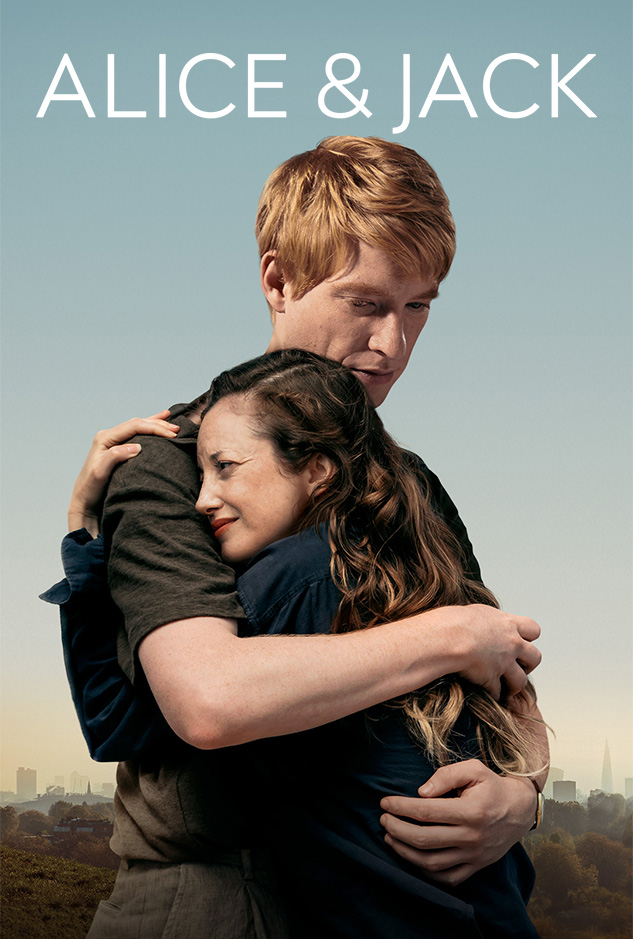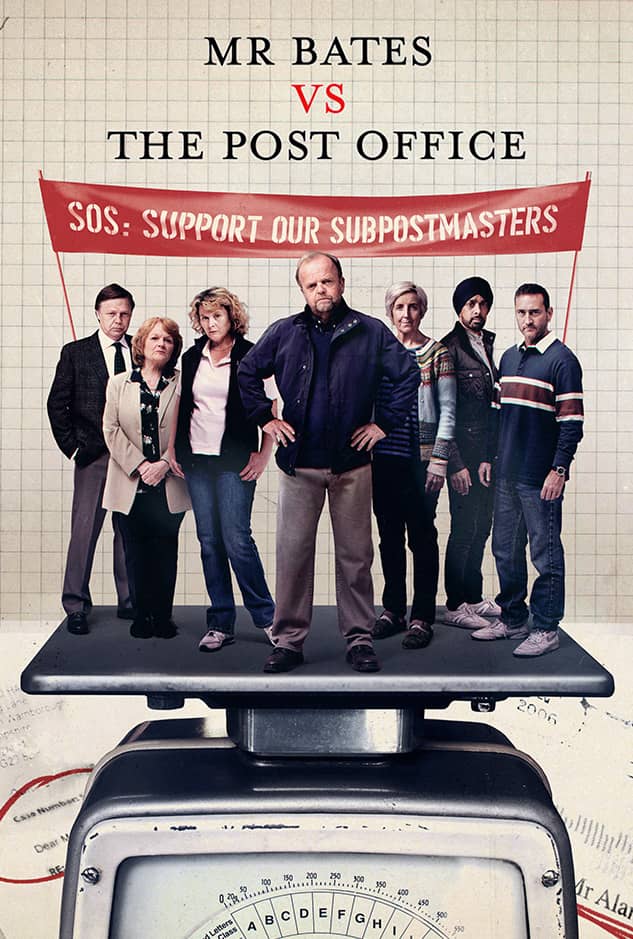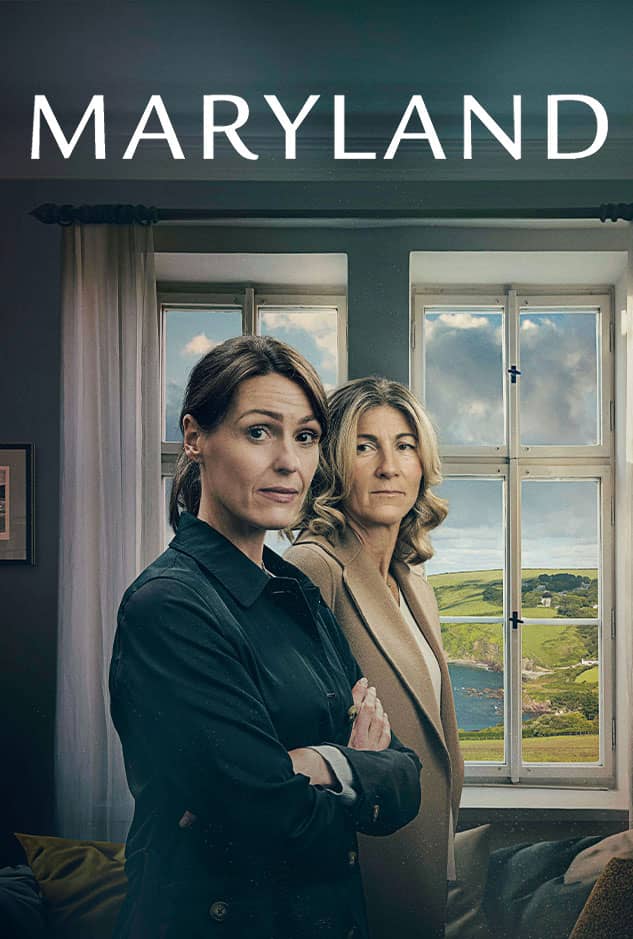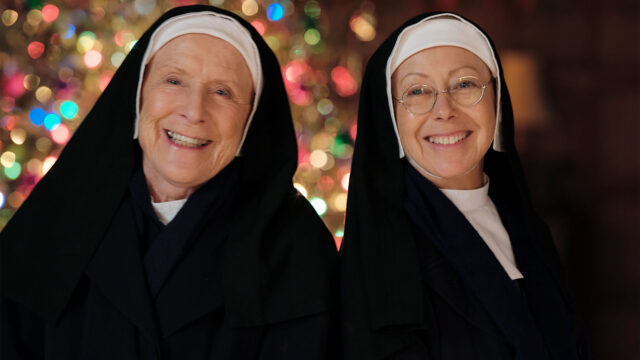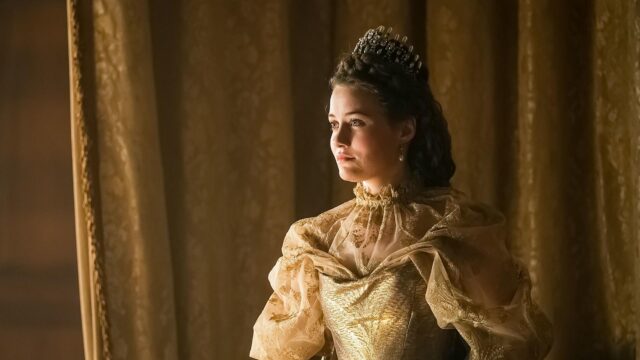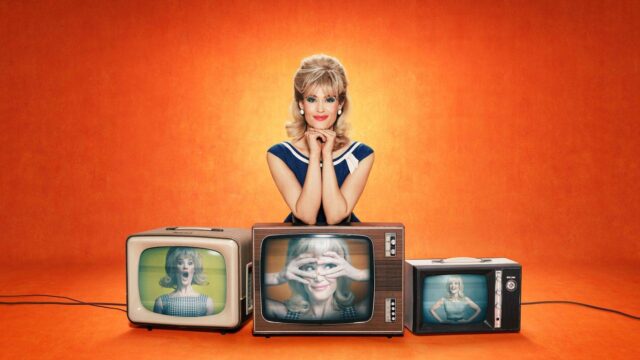10 Questions for Rachel Shenton
Over the course of All Creatures Great and Small‘s four seasons, Helen has gone from farmer to wife to soon-to-be mother. In a Season 4 interview with MASTERPIECE, actor Rachel Shenton discusses Helen’s pregnancy, what she learned from the real James Herriot’s children, and filming a scene that overwhelmed her emotionally. Plus, we get her take on the Mrs. Hall and Gerald relationship (hint: it’s probably very similar to yours). All this and much more in just 10 questions!
Contains Season 4 Episode 6 spoilers.
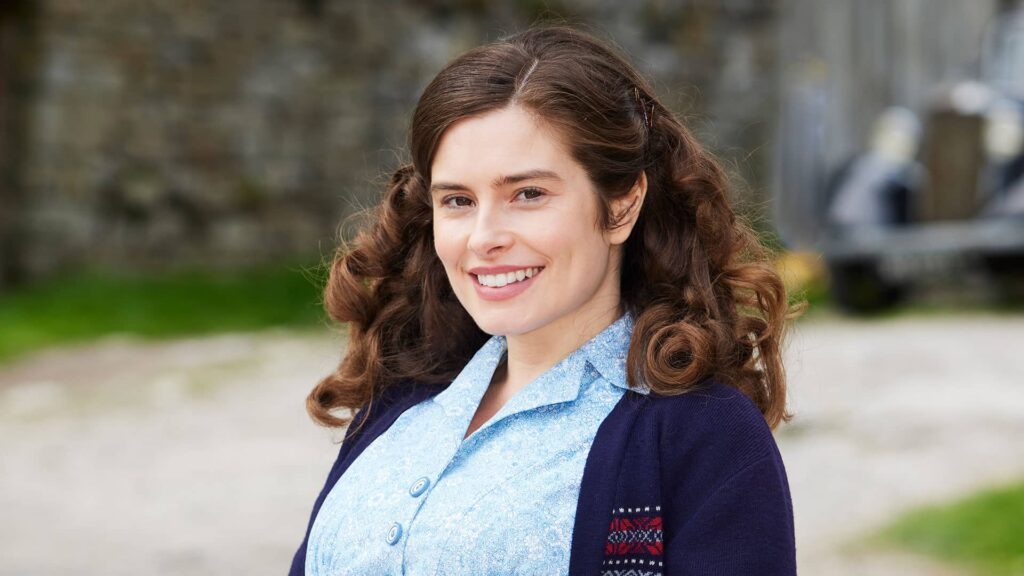

Helen’s pregnancy is central to her storyline and character in Season 4. Can you talk about the challenges she’s facing along with the joys?
I think this is a real journey for Helen. She’s usually the emollient in Heston Grange, is very much a central character in Skeldale, and is really good at being busy, being there for everybody, and coping—that’s very much her identity. And I think that this season is actually the first time that she needs other people—and towards the end of the series, quite literally, because she’s not as mobile and she needs help from Mrs. Hall and James to get around and do things for her.
But emotionally, as well, there’s a sense that her world’s rocked this season. Being pregnant with her first child is a big thing, and especially as an independent woman. Then, being a farmer, she’s like, “What’s that going to look like?” And then there’s the added pressure of James is going to war, and ultimately, the question that is on every partner’s mind in these situations, will he come back, and if he does, will he be the same? So that’s very real for her.
In Episode 6, when Helen is terrified that something has gone wrong with the baby, Siegfried finds the baby’s heartbeat and she hears it. Did that moment move you, and what was it like to create?
Yeah, completely, because Helen was very much on her own. James and Helen have got such an unshakeable union—they’re a really brilliant team, and it’s something that Nick and I always try and recreate, because it’s stuck in our minds from when we first got cast and we talked to Jim and Rosie, who are Alf and Joan Wight’s—that’s the real James and Helen’s—children. They spoke about this brilliant union that their parents had, how they were a force to be reckoned with, and how they were always the caretaker of each other’s emotions. It was something that we really felt strongly about getting right.
In Episode 6, she needs James, and he’s not there, because he can’t be; he’s away at war. So there’s a moment where she comes downstairs, just before they go to Heston Grange, and Siegfried checks Helen’s belly. Helen goes into the lounge with Mrs. Hall, and it’s almost like a blind panic. As I’m playing that role—and I’ve played it for four seasons now, and I’ve never played that [panic] before, because she doesn’t get there. I think she usually doesn’t get there because, one, she’s very measured, and two, James is always there. It was a marker that actually, she’s on the verge of not being okay. And so when that moment happened, when they did hear the baby’s heartbeat, it was just complete overwhelming and ultimate relief that she’d managed to keep both of them safe.
Did you learn anything from Jim and Rosie about this time in their parents’ lives when they were expecting their first child?
We learned that when Alf signed up, Joan wasn’t pregnant yet, and then, of course, she was. I think they wove that into the story really well, the sense that actually, had Helen been pregnant, who knows what James would have done. Would he have gone? Who knows? That wasn’t the case, and they dealt with his departure like they dealt with everything: as a team.
But that actually was one of the few scenes that has ever really rocked me—I almost couldn’t get through it, when he was going to war in Episode 5. I was so emotional from the moment I first read it because I just was so invested in this story, and James was leaving. Helen said, “Do you mind if I don’t come to the bus stop? I can’t face it,” and there was that real moment where you can put yourself in that position, like, “Oh my goodness—this person might not come back. That’s the reality.” And that was so overwhelming for me. I was very grateful that our brilliant director, Jordan Hogg, managed to do it in one take, because I was falling apart, so I’m glad that they didn’t make me do it again and again.
But in answer to your question, I think they felt a huge sense that they were both bereft when they were apart and desperately wanted to be together. They were a real team.
Helen’s relationship with Mrs. Hall deepens in Season 4. They’re different ages, they’re different backgrounds, and yet they have become real friends. Is there something of a mother/daughter element, too?
Oh, without a doubt there is. We’ve seen it a couple of times when she’s really needed it, when there’s no one around Helen to say, “Are you okay?” You very much feel that absence, and getting married and having a child are two of the biggest, so it’s really nice that Audrey’s there. And Helen is able to create a sort of safe space for Mrs. Hall, as well, who also doesn’t have anybody really that she can share some things with. I think it’s really interesting that Helen’s the only one who isn’t on the payroll at Skeldale, and there’s a bit of a fear through the house of Siegfried, but Helen doesn’t subscribe to it, because why would she? So I think that it’s a safer space for Mrs. Hall as well, which is nice.
It’s such fun to watch Helen and Siegfried’s relationship play out. How does she keep her cool with him and maintain their mutual respect?
I really like that she calls him out. She can roll her eyes, raise her eyebrow, or make a cheeky comment, and she’s been like that from the very beginning. The first scene I shot was with James and Siegfried, and there was even back then a mutual respect between Helen and Siegfried. I think that’s because she takes no nonsense. She’s known him since she was little so she’s completely unfazed by his shouting, and quite frankly, she’s used to Richard Alderson, so Siegfried’s shouting is nothing. She’s used to these strong men that throw their weight around and shout—she’s royally unfazed by it. And he doesn’t pay her wages, so I think if anyone was to really get on his nerves, it probably would be Helen, because he’s got no power over her.
What has it been like to see Imogen Clawson, the actor playing Helen’s sister Jenny, grow up alongside her character?
Well, I’d like her to stop growing now, because she’s actually taller than me, so I’d like that to stop. We joke about it all the time—I’m like, “Could we just do scenes where she’s sitting on a chair, because she’s so much taller than me?” Oh, she’s gorgeous, absolutely lovely. She’s a joy to be around. She’s so bright, and a pleasure on and off set, and to see her grow as an actor. And we hang out outside of work, go to Nando’s sometimes, which is a sort of cheesy fast food place around here, and have a burger and chip. We catch up on life as well as work, and so we’ve got that relationship, which is really lovely.
Do you have a favorite or funniest animal moment from Season 4?
When they put scenes with Anna [Madeley] and me together, usually we giggle about something and then can’t stop. That’s just kind of what happens, even though it’s often nothing related to the script. But there was a great scene with the little cat when he had to be in a bad way because he’d been knocked over. They were trying their best to make him look as unhealthy as they could, but he was so lively that he just kept popping up with these beautiful, big, bright eyes in the middle of a take. We were like, “Cut! Reset!” I’d be talking about, “Oh, poor little thing. He’s in a bad way,” and then he’d just pop up, all bright-eyed like, “Who, me?” That was quite a funny moment. It was great.
It was heartbreaking to see Mrs. Hall and Gerald part ways. How do you feel about it?
It’s so emotional, wasn’t it? I’m very invested in Gerald and Mrs. Hall’s relationship. I’ve said it on the record plenty of times, that watching Mrs. Hall and Gerald’s stuff is usually my favorite, and maybe it’s because of two reasons: one, I’ve usually got a hand in the other stories—I’ve either read them, I’m in them, or I’ve understood them a lot because there’s a crossover with Helen’s character in other stories—whereas the story between Gerald and Mrs. Hall, I’m never involved in, so I can really just sit back and enjoy it like a viewer. Even at the read-through, I try not to listen too much, because I like to just be surprised by it. And two, I really liked them. I really liked Gerald. I thought they had something good. But he needs to go and look after his sister, and she can’t leave Skeldale, and I get it. So maybe it’s one of those things when life’s sometimes a bit unfair.
Also, Will [Thorpe, who plays Gerald] is just bloody hilarious. He’s such a great guy to have on set—he’s brilliant at telling the jokes, he’s got such good comedy timing. He’ll be missed.
As for your adorable little Maltese, Rosie, which dog from the show is she most like, and who would be the most fun play date for her?
Dash, the little ginger head cocker spaniel in Skeldale, has got such a beautiful temperament. She always wants a cuddle, and Rosie just wants a cuddle, so I’d say in personality, she’s probably most similar to Dash. As for a play date, I think it would be Tricki because he’s so chill and Rosie’s quite chill—she likes to just be with you, lie around a bit. If you get some chicken or some treats, she’s happy, and he’s the same, so I think that they’d be soulmates.
What can you tell us about the scripted podcast Gladstone Girls that you’re creating, and that draws from some All Creatures Great and Small talent? It’s not out yet, but we can keep our eyes and ears on alert…
Well, it’s a comedy drama, really, and a labor of love. I’m from three generations of pottery women. It’s set in 1972, in a Gladstone pottery factory in a lithograph room. Every Friday in the factories, the girls would basically turn the factory floor into a hairdressing salon to get ready for their big night out. So it was all hairspray, makeup, and curlers, and they’d put their hair, famously, in “pickle,”—where I’m from, you’d say you put your hair in pickle instead of in rollers. It was coined Curl Friday, because that’s what happened every Friday. Then, a new floor manager arrives, played by the brilliant Adrian Rollins, who played Hargreaves in Season 3—he wants to put a stop to Curl Friday, and the girls end up going on peaceful protest every day. I got Anna Madeley to play the lead, because she’s just fabulous and she can’t get away from me that easily, so she did it, whether she wanted to or not! And Dorothy Atkinson’s [All Creatures Great and Small‘s Diana Brompton] in it too. The women were so tough, so strong, and so funny. There was a real sense of togetherness, camaraderie, community. So it’s good fun, and it’s about curlers, but actually it’s about sticking together and standing up for what you believe in, and that feels relevant even now.
It is just a celebration of the potteries industry, really, of an industry that I don’t think many people know much about, this entire industry that came from this tiny little place in the middle of England. We interviewed over a hundred pottery women, so it’s based on true stories and real life. It’s a skill that people don’t know about much. They were so rich in artistry. My grandma used to say that when she first held a paintbrush, she knew that’s what she wanted to do for the rest of her life. She was just as much as an artist as I am, but she never earned the right to be an “artist” because she was in a factory. I feel very protective of this story, more so than probably anything else, because I know the people so well, and I feel very strongly that they’re depicted in the right way. I’m very proud of it.












